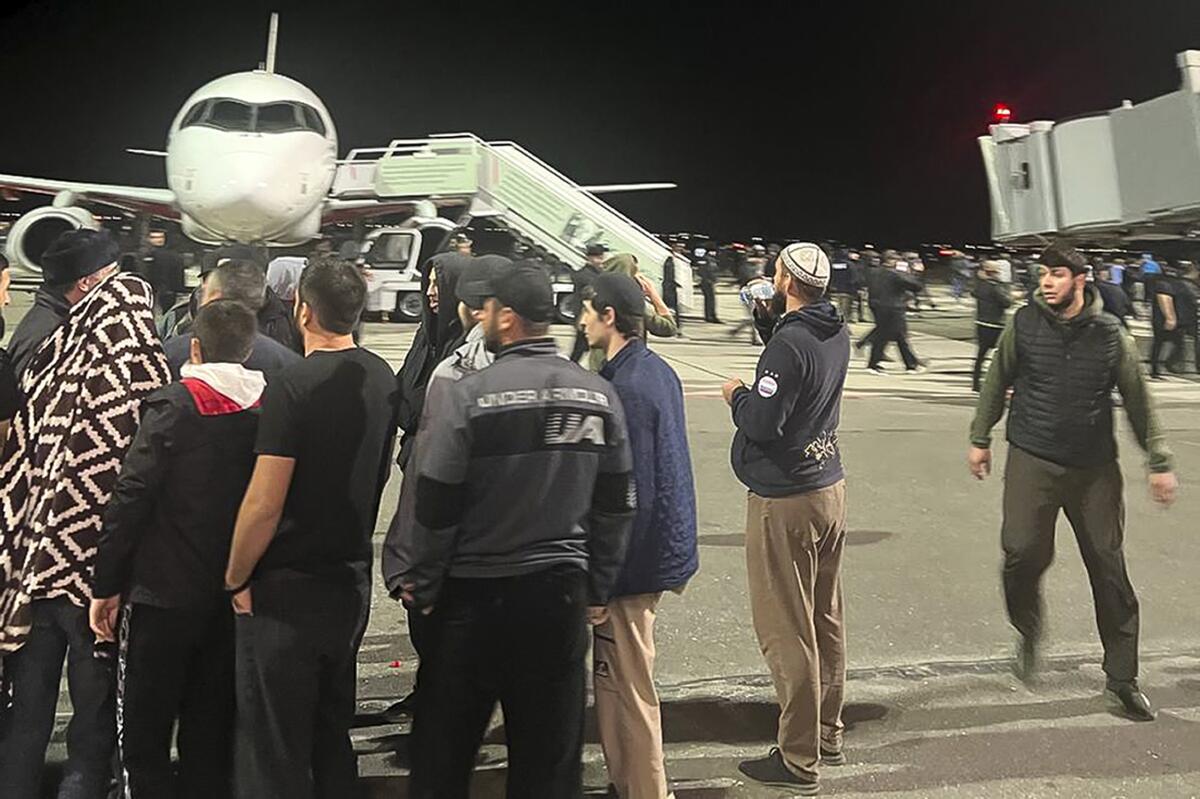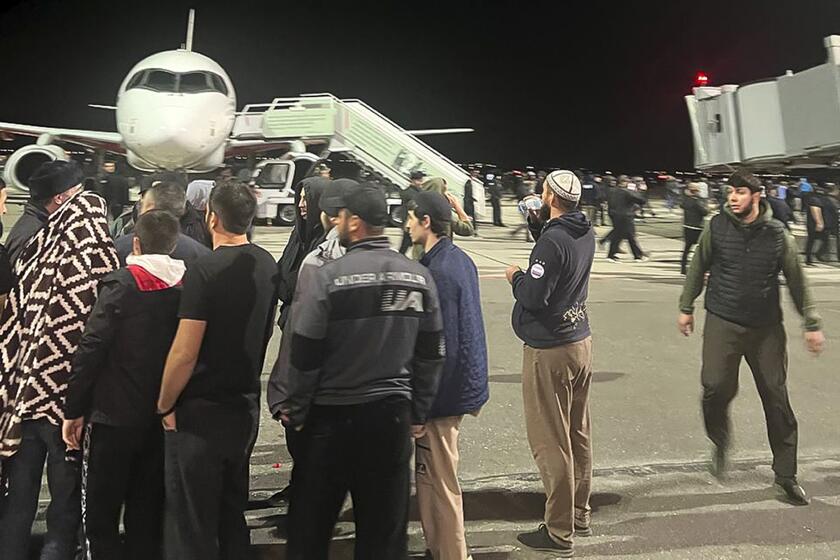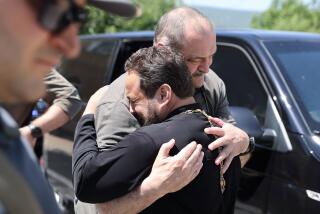Israeli envoy to Russia says Tel Aviv passengers hid from rioters, flown by helicopter to safety

- Share via
TALLINN, Estonia — Israel’s ambassador to Moscow gave new details Wednesday of the weekend riot at an airport in southern Russia when a flight from Tel Aviv landed there, saying some of the passengers had to hide in the terminal before being flown by helicopter to safety.
Ambassador Alexander Ben Zvi blamed Sunday night’s unrest on extremist elements resulting from ″indoctrination″ in the mostly Muslim republic of Dagestan. But he said that overall, there is no antisemitism “on an organized level” in Russia. He added, though, that authorities should take the incident seriously so such actions don’t spread.
“Of course, there has always been, is and will be antisemitism on the everyday level. The important thing is that it doesn’t develop into what we saw in Makhachkala,” Ben Zvi told the Associated Press in an online interview from Moscow. “If all this is under control, I think there will be no problems.”
The angry mob stormed the airport in Makhachkala, the capital city of Dagestan, when the flight from Israel landed there. Hundreds of men, some carrying banners with antisemitic slogans, roamed the building and rushed onto the tarmac looking for Israeli passengers. It took the authorities several hours to disperse the mob, which threw stones at police.
At least 20 people, both police and civilians, were injured and more than 80 were detained. Russia’s Investigative Committee opened a probe on the charges of organizing mass unrest.
Hundreds reportedly stormed the main airport in the Dagestan region, surrounding an airplane and chanting antisemitic slogans. Over 20 were injured.
Authorities in Dagestan said 17 people were charged with petty hooliganism and of participating in an unauthorized mass event, with courts ordering 15 of them to serve short stints in jail and two others — to undertake correctional labor.
It remains unclear whether dozens of others detained Sunday night would face any charges and whether any of them would be implicated in the criminal probe.
Ben Zvi said more than 30 people on the flight were Israeli citizens, and none were hurt.
When the passengers got off the plane and passed through passport control, “they apparently ran into some kind of unrest,” he said.
“In the end, most of them ended up in a VIP room, and they hid there and spent some time there” until they could be flown by helicopter to a closed facility, he added.
After spending the night there, the passengers were flown — again by helicopter — to Mineralnye Vody, a city in the neighboring Stavropol region, and from there they traveled onward, he said.
Although no passengers were hurt, “I must say, that both the regional and the federal authorities should take this very seriously, because it could have led to victims. And that really would have influenced the entire situation in Russia,” he added.
After a Russian mob, some displaying antisemitic slogans, rushed an airport tarmac looking for Israeli passengers, Putin tries to blame the U.S., Ukraine.
President Vladimir Putin blamed the unrest on “agents of Western special services” in Ukraine, saying without offering evidence that they provoked the rampage in Dagestan to weaken Russia.
U.S. National Security Council spokesman John Kirby called Putin’s allegation “classic Russian rhetoric,” adding that “the West had nothing to do with this.” Kirby criticized Putin for not doing more to condemn the violence, which he described as “a chilling demonstration of hate.”
Ben Zvi said he had no information about the unrest being orchestrated from abroad.
Israeli Prime Minister Benjamin Netanyahu’s office had said Israel “expects the Russian law enforcement authorities to protect the safety of all Israeli citizens and Jews wherever they may be and to act resolutely against the rioters and against the wild incitement directed against Jews and Israelis.”
In the AP interview, Ben Zvi said his country’s relations with Russia relations are normal amid the Israel-Hamas war, even though there are disagreements over some of the Kremlin’s policies in the Middle East.
“There are highs, there are lows. Not always we’re happy with Russia’s position, not always they’re happy with our position. We express it to each other,” he said, citing the recent visit of a Hamas delegation to Moscow as an example of something that Israel “really didn’t like.”
More to Read
Sign up for Essential California
The most important California stories and recommendations in your inbox every morning.
You may occasionally receive promotional content from the Los Angeles Times.












